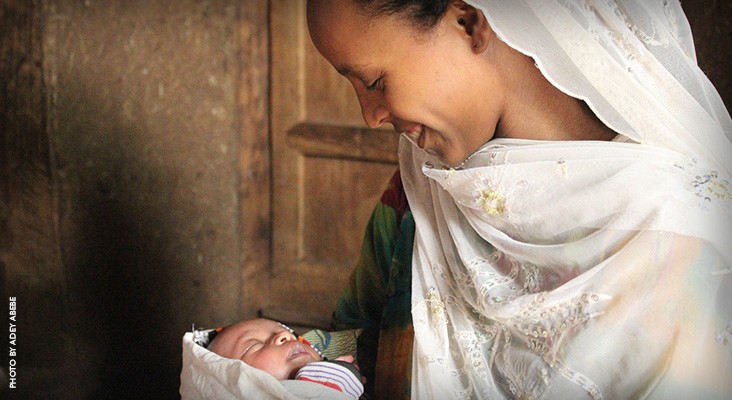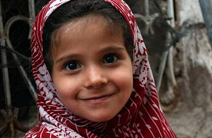Ethiopia
- History
- Our Work
- Foreign Assistance Data
- Dollars to Results
- PARTNERS
- Newsroom
- Fact Sheets
- WORK WITH US
Speeches Shim

Since 2000, Ethiopia has reduced maternal and child mortality by half, but a maternal mortality rate of 412 per 100,000 live births and child mortality rate of 67 per 1,000 are still too high. Impressive progress has been made with half of women now giving birth in a facility, reducing the risk of death due to complications during delivery. However, ensuring timely arrival and service quality at facilities remains a challenge. These conditions are exacerbated as the health system struggles to both meet the demand for routine quality healthcare and the frequent need to respond to drought, conflict or disease outbreaks, including COVID-19.
Chronic and acute malnutrition also continue to threaten the lives of young children, and make them more vulnerable to other illnesses. Nearly 4 out of every 10 Ethiopian children are stunted from chronic malnutrition due to the lack of nutrient-rich foods or appropriate care and feeding practices.
In response, USAID invests in high impact interventions that improve the health and well-being of women, children and families across the country by expanding access to quality health services with a focus on reaching underserved communities. Working closely with the Ministry of Health and regional health bureaus across the country, we strengthen health workers’ skills to provide better quality services at the facility, community and household levels, with a focus on safe childbirth practices that protect the lives of mothers and infants.
USAID also supports an integrated services approach that expands access to essential health services like antenatal checkups for pregnant women, skilled birth attendance in health facilities, essential newborn care, prevention and treatment of childhood illnesses -- including immunization programs -- and nutrition counseling and support to keep Ethiopian children healthy as they grow up.
KEY ACTIVITIES
- USAID’s Transform Primary Health Care and Transform Health in Developing Regions projects improve capacity for health administrators and managers to plan, budget and manage public health programming, strengthen the capacity of local health healthcare providers and medical professionals to improve the quality of basic health services in underserved areas of the country.
- The Core Group Polio Project is working to eradicate polio from Ethiopia. They support outbreak response, and work to improve access to immunizations through both routine programming and campaigns, as well as improve the quality of immunization programming in hard to reach and border areas of Ethiopia.
- The USAID Feed the Future Growth through Nutrition program improves the nutritional status of 2 million pregnant women, infants and young children through community-based education campaigns that promote proper nutrition and practices that incorporate vitamin and nutrient-rich food into household dietary practices.
KEY RESOURCES
- Fact Sheet: Maternal and Child Health in Ethiopia [PDF 230 KB]
- News: USAID Invests in Digital Solutions to Modernize Ethiopia Health System
- News: U.S. Investments Improve Skills of Nearly 50,000 Ethiopian Health Workers
- Our Stories: Local Leader Champions Better Health Services for Her People
- Our Stories: Skilled Birth Transformed through Use of Solar Suitcases
- Our Stories: Health is Wealth



Comment
Make a general inquiry or suggest an improvement.